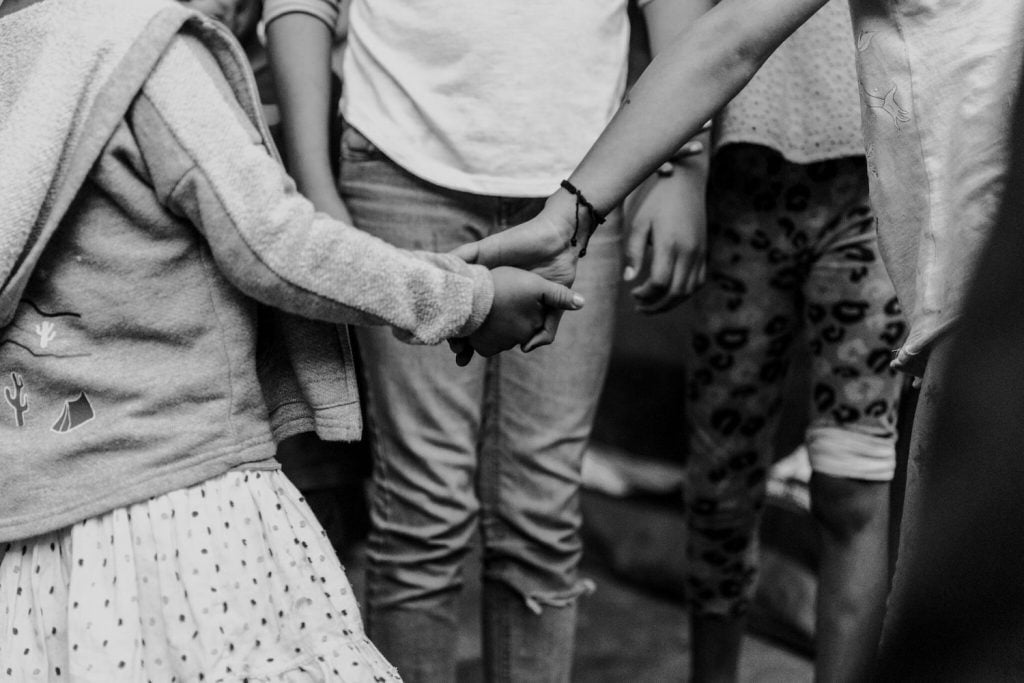Big price tag: Construction starts on $98M affordable housing complex in City Heights
Construction started Wednesday on one of San Diego’s most expensive subsidized housing developments in its history.
The $98 million Cuatro development in City Heights, taking up four buildings, will have rent-restricted units for extremely low-income residents earning 30 percent to 60 percent of area median income. That is about $28,950 to $57,900 a year for an individual.
Construction cost comes out to around $846,975 per unit, higher than most recent luxury market-rate apartments. The developers have said the price is due to increased construction costs, interest rates, extra permits from requirements tied to funding sources and the buildings not being attached.
Cuatro is spread out in four separate buildings that are not connected, with three buildings on University Avenue and a fourth on El Cajon Boulevard. A wait list has yet to be created but is expected to start as the complex gets closer to opening.
“We are doing everything we can to speed up the production of housing that is affordable for low- and middle-income San Diegans,” said Mayor Todd Gloria at the ground-breaking ceremony Wednesday. “Here at Cuatro, lots that were languishing for, literally, decades, are finally getting under way.”
Rents are not yet set and will vary based on income, vouchers used and if tenants have recently experienced homelessness. Gloria said a rough estimate is $723 for an individual for a studio and up to $2,150 a month for a family in a three-bedroom.
The 117 rent-restricted apartments, and commercial space, are expected to be completed by fall 2025. The project, which received considerable public financing, is a partnership between the affordable housing builder Wakeland Housing and Development Corp. and the City Heights Community Development Corp.
Politicians, nonprofits and community groups at the ceremony — many of which tried to get the project going for the nearly 30 years the land sat vacant — were treated to a mariachi band and a poetry reading. Local artist Josué Baltézar
Organizers said Cuatro will become a focal point for the community. There will be 13,094 square feet of commercial space spread across two buildings mostly for refugee and immigrant groups. One building will be for the Salaam Youth and Community Center and
The biggest expense for the project includes construction costs at $58.8 million, according to developer estimates. Other costs include $7.2 million to buy the land, $4.2 million for design and engineering, and
Nathan Moeder, a San Diego housing analyst with London Moeder Advisors, said he is working on a new North Park market-rate project for a client that will have 104 units and is estimated to cost $350,000 per unit — less than half of what Cuatro will cost. He said the strings attached to funding — such as only paying higher prevailing wage for construction workers — for affordable housing can greatly increase the final price.
“With all the strings attached to funding for affordable housing, it increases the cost probably by 40 percent,” he said. “A cost per unit of nearly $900,000 per unit is equivalent to a high-rise tower that is 20 stories built with concrete and steel.”
Real estate tracker CoStar said the average sale price for an apartment in San Diego County was $447,599 in the first quarter. That is different than construction costs and averages a mix of very old properties selling and those built in the past few years. One of the newest built complexes to sell, which should be closer to the per-unit construction cost, was Jefferson La Mesa. The 891-unit complex was completed in late 2022 and sold last year for $482,609 a unit.
Funding for the project comes from federal, state and local sources. Some of the sources include a $4 million loan from the City of San Diego; $8.4 million from the state Housing and Community Development and Veterans Housing and Homelessness Prevention departments; $27.5 million from the Department of Housing and Community Development programs for multifamily housing and infill projects; and $37.7 million in various tax credits for building low-income housing.
Wakefield Housing CEO Rebecca Louie pushed back against the assumption that market-rate housing would be cheaper to build. She said the sites had contaminated soil, much of which had to be taken off-site, and four separate buildings require four different designs and approvals.
“I would say I doubt it is that different,” she said of the cost to build market-rate housing there.
San Diego Council President Sean Elo-Rivera said he hoped people would not focus on the project’s price, but on the value it would bring to the community.
“For the people that have the opportunity to live here,” he said Wednesday, “in the studios, one bedrooms, two bedrooms and especially three bedrooms, it will keep together multi-generational families together in a way that is becoming more and more difficult. That is priceless.”
Like most subsidized projects, Cuatro apartments must stay rent-restricted for 55 years. Tenants will likely be a mix of individuals and families because there are many apartment sizes: Studios, one-bedrooms, two-bedrooms and three-bedrooms. Around 30 of the apartments are set aside for homeless veterans.
Amenities at the project will include outdoor courtyards, laundry facilities and bicycle parking. The building at 4050 University Ave. will have a community room with a kitchen, an outdoor courtyard with recreation areas and a barbecue space with tables and benches.
Residents will not have parking and it’s hoped by developers that they will use the nearby City Heights Transit Plaza for buses, which is a short walk from all four buildings. The project surrounds state Route 15, which community leaders say split the City Heights community and displaced families for its construction.
Categories
Recent Posts










GET MORE INFORMATION


